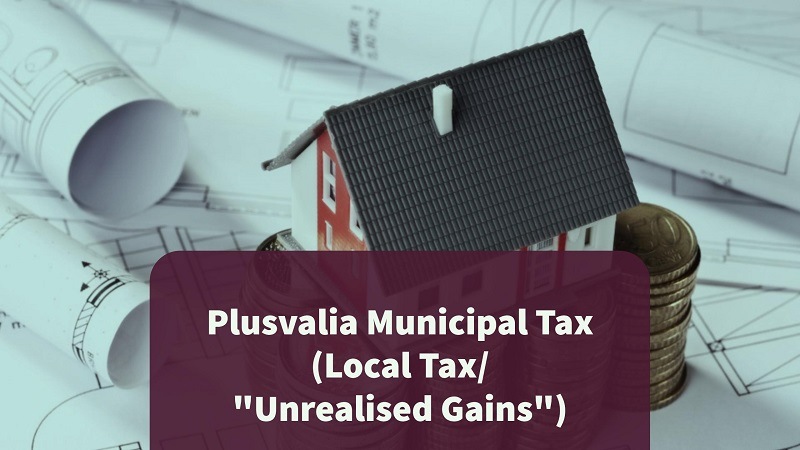
The Constitutional Court of Spain, in a judgment dated February 17, 2017 and unanimously, has declared unconstitutional the tax known as Plusvalía Municipal, technically called “Tax on The Increase of the Value of Urban Land.” Similar cases have already been raised, in particular to the courts of Vitoria and Madrid, although they still remain unresolved.
What is the nature of this tax and how is it calculated?
The controversial tax is regulated by the Local Tax Law (Ley reguladora de las Haciendas Locales), meaning that each municipality is in charge of the corresponding legislation. It must be noted that the Tax on The Increase of the Value of Urban Land must be paid when a property is sold, i.e. until the sale does not take place, the City Council does not liquidate the above mentioned tax. For its calculation, it takes as a base the cadastral value of the land, as shown on the IBI receipt, and takes into account the number of years that the owner has enjoyed the property, with a maximum of twenty years.
As it is well known, the cadastral value is reviewed periodically always with an increasing trend, even in periods of severe real estate crisis and taken into account that one of the criteria to determine the cadastral value should be the market value. This is precisely the fact that has generated the controversy since, during the years of crisis, many owners sold their properties with serious capital losses, and however, they had to pay the Municipal Tax since the cadastral value of the land is always increasing.
What is the content of the Constitutional Court Sentence?
Based on the above, it seems incoherent that a property owner pays a tax for the increase in the value of the land when, in fact, a profit has not been made or even worse, a capital loss has taken place. This is what the Constitutional Court has concluded arguing that it is not legal to force the payment of a tax when there has been no economic gain. In this sense, the Court considers that the mentioned tax goes against the principle of economic capacity, included in art. 31.1 CE (Spanish Constitution) for the reasons stated above: “under no circumstances may the law establish a tax by taking into consideration acts or facts that do not mean an actual or potential wealth”.
However, the municipalities, despite being aware of the capital losses suffered by property owners during the years of crisis, have continued liquidating this tax – according to the Official Spanish Budgets, only in 2015, more than 2,600 million of euro were collected through this tax.
What will happen after the Constitutional Court Sentence and what can be done by affected people who paid the Municipal Tax?
After the ruling of the Constitutional Court, the municipalities will have to reform the Local legislation in such a way that it cannot tax situations where there is no economic gain.
In this sense, it is possible to predict that many citizens will go to the municipalities to address their claims, as has been the case with other current matters such as floor clauses. In principle, the affected ones could request the annulment of the liquidation carried out and the refund of the amount paid as Municipal Tax, provided they have not had a capital gain and no more than four years has gone by since the payment of the mentioned tax. However, it might even be possible to claim expired years (more than four years since the payment of the tax) given that the sentence has declared some of the legislating articles unconstitutional (last 4 years).


